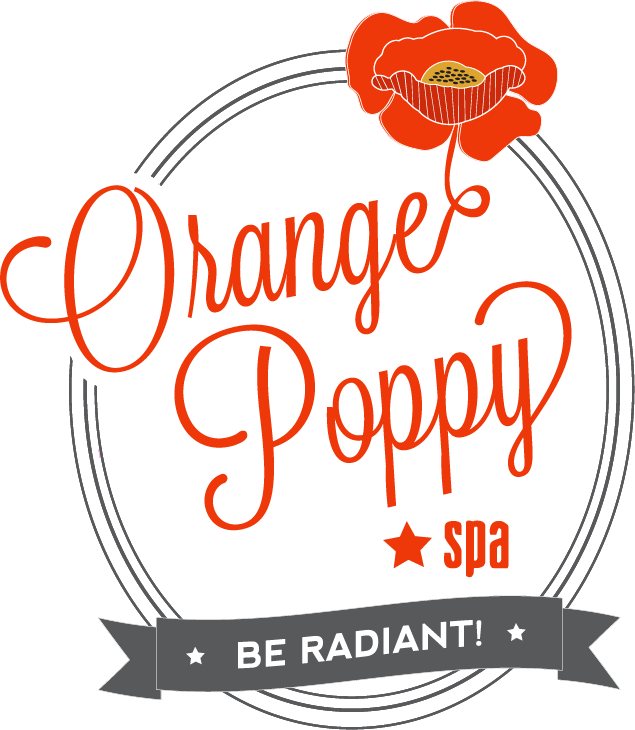TRETINOIN IS NOT ANTI-AGING. IN FACT, IT’S THE OPPOSITE
PRE P.S. Make sure to check out our Spring Cleaning Sale. All sorts of spa goodies including ip treatments, sheet masks and men's shaving kits are 50% off while supplies last!
Hello Beautiful Soul,
TRETINOIN IS NOT ANTI-AGING. IN FACT, IT’S QUITE THE OPPOSITE
Vitamin A is a game changer when it comes to reversing signs of aging. The benefits of topical Vitamin A include collagen and elastin production, stimulating cell turnover, and reducing hyperpigmentation, just to name a few. Unfortunately, prolonged use of Vitamin A in the form of Tretinoin (Retin-A) has been shown to reduce the thickness of both the epidermis and the dermal layers of skin in multiple independent studies.
Our skin naturally thins with age, in fact, starting around the age of 30, we lose about 1% of our collagen each year. Why would you want to accelerate the thinning of your skin while also increasing your odds of getting skin cancer? Especially, when you can get all of the benefits without the uncomfortable and dangerous side effects. If you’re like most savvy consumers who want to look and feel vibrant and youthful, you might be thinking, tell me more!
NOT ALL VITAMIN A IS CREATED EQUAL:THE RETINALDEHYDE (RETINAL) DIFFERENCE
By maximizing your skin’s collagen and elastin making efforts, Retinaldehyde is the most age-reversing topical retinoid (Vitamin-A) available. Retinaldehyde/Retinal is the ONLY form of Vitamin-A that your skin is able to store. This means your body is in charge of how and when this powerhouse ingredient is used. Meanwhile Retin-A/Retinoic Acid/Tretinoin are more like dropping a bomb on your skin. Your receptor cells become saturated all at once causing over stimulation which ultimately results in the thinning of your skin. Plus only about 2% of the active ingredient makes it to the dermis leaving most of the Retin-A free floating which causes sun sensitivity and irritation. Check out the comparison chart below.
As you are about to discover, our skin naturally thins with age (control group) and the use of Tretinoin will actually thin your skin overtime while Retinaldehyde has the opposite effect in that it builds skin returning it to the resilient bounce of your youth.
The study below shows a net effect of .05% Tretinoin use versus the same strength Retinaldehyde is equivalent to an 11 year swing in dermal thinning (AKA aging) in just one year!
Retinaldehyde is the closest thing we have to the proverbially fountain of youth in a bottle.
DID YOU KNOW?
The pharmaceutical companies that make Tretinoin recommend that patients
“Avoid sunlight and other medicines that may increase your sensitivity to sunlight.”
Here is a very short list of just a few of the most common medications that cause sun sensitivity according to the FDA:
antibiotics
cholesterol lowering drugs
antihistamines
birth control pills
ibuprofen
Meaning if you use any of these common medications you should not use Tretinoin.
Worse yet, a study by the National Institutes of Health determined that the number of cancerous skin tumors increased in both the presence and absence of solar light when retinoic acid was used. yikes!
STRONGER IS NOT NECESSARILY BETTER
Have you ever heard anyone say, “You’ve got to work your skin, just like going to the gym.” Well there is one major problem with that analogy; your skin is a living, regenerating organ that helps protect, detoxify and regulate -- it’s not a muscle. Suffering or “powering through” burning, peeling and skin irritation and expecting positive results is equivalent to binge drinking and expecting to grow a better, stronger liver. Sometimes it feels like vanity has driven us to insanity.
YOU MIGHT BE WONDERING IF ALL OF THIS IS TRUE THEN WHY DO DERMATOLOGISTS KEEP WRITING PRESCRIPTIONS FOR TRETINOIN?
This can’t be true, right? I mean why would anyone recommend Tretinoin when it has so many negative side effects? Not to mention, a safer alternative that is even more effective is available without a prescription?
Before we get too cynical, I believe that dermatologists do remarkable work, improve people’s quality of life and are essential health care providers. So thank you to all of them, including my own personal dermatologist. And we all agree that topical Vitamin A is a game changer in terms of results oriented skin care. But remember, doctors are trained to solve problems with prescriptions. They are taught that Retinoic-Acid (Tretinoin) is the gold standard in cellular turnover and therefore the “best” treatment for acne and aging. But more cellular turnover is not necessarily better, especially if it ultimately leads to the thinning of your skin. In 2020 over 2 million prescriptions were written for tretinoin creams.
That means there are approximately 190 million reasons ($$) for pharmaceutical companies to promote these products to doctors.
THANK YOU SCIENCE
Over 40 years ago when topical vitamin-A was coming on the market to treat acne, labs were unable to effectively stabilize the ideal form, Retinaldehyde/Retinal. So instead they went with Retinoic Acid but due to the many side effects it was available by prescription only. Fast forward over 40 years and voila, Retinaldehyde can now be reliably stabilized.
Think about what your phone looked like over 40 years ago. Science and technology have certainly advanced so put down the rotary phone version of skin care and pick-up the smartphone equivalent of topical Vitamin-A … RETINALDEHYDE!
Table is above is compiled from
THE JOURNAL OF THE AMERICAN ACADEMY OF DERMATOLOGYVolume 37, Number 2, Part 1 Table IV. Summary of _histologic changes at 24 and 48 weeks in tretinoin-treated skin
DERMATOLOGY 1999: 199 =(suppl 1): 37-41 Jean-Louis Alibert Center and Department of Clinical Research, Pierre Fabre Research Institute, Toulouse, France


